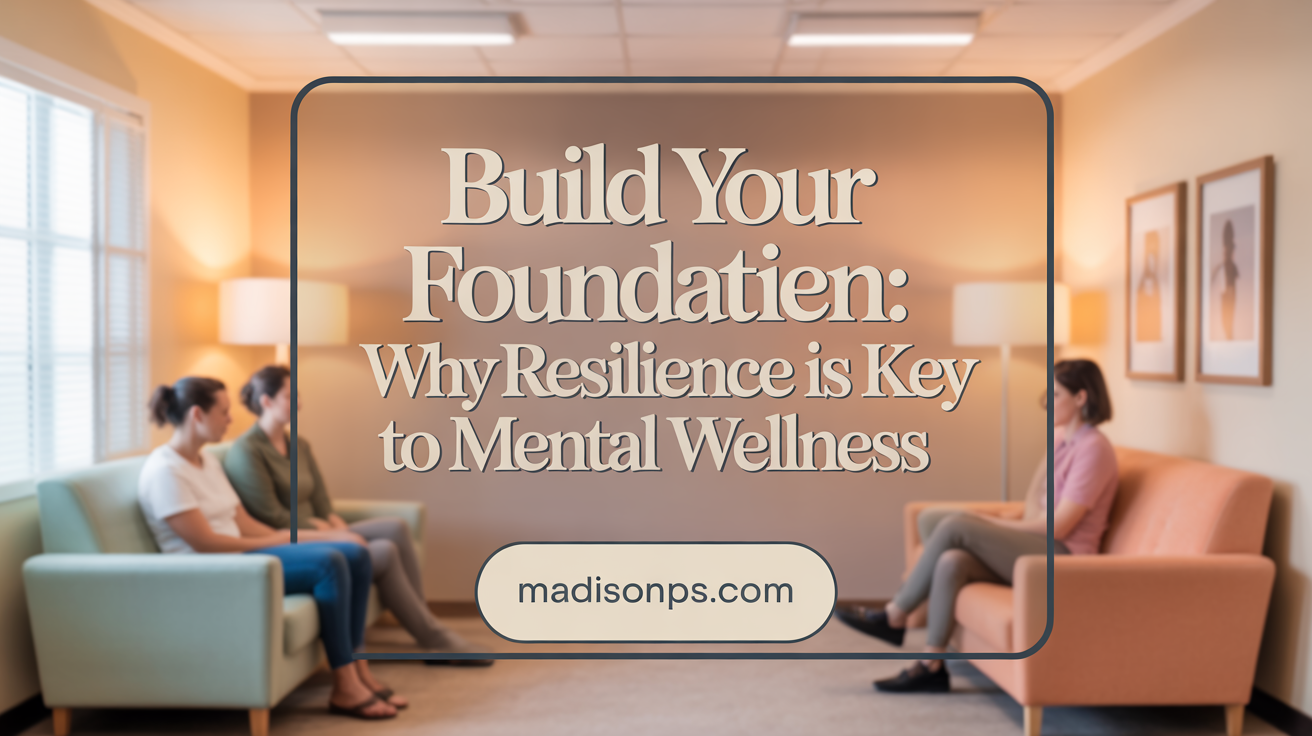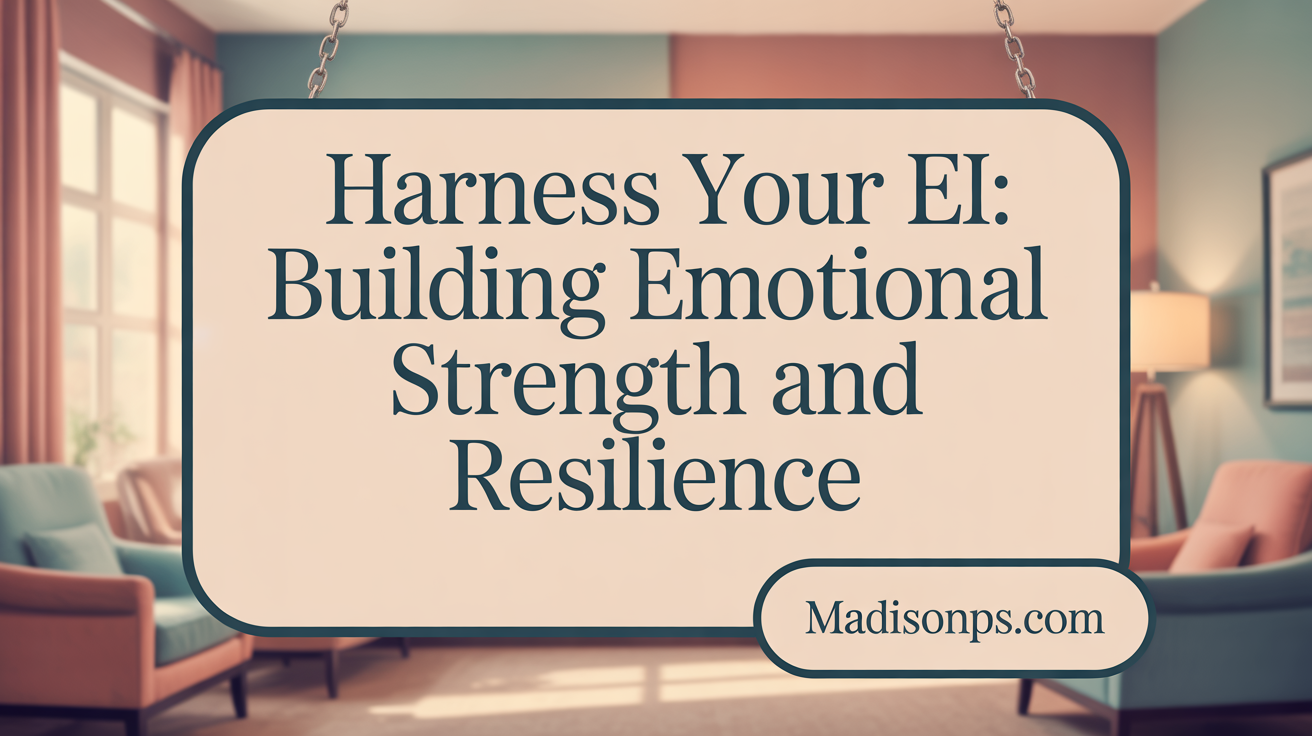Understanding Emotional Resilience Through Therapy
Emotional resilience—the capacity to adapt and thrive in the face of adversity—is a critical life skill, not a fixed trait. Therapy plays a pivotal role in nurturing this skill by providing individuals with insight, coping strategies, and emotional tools to manage stress and setbacks effectively. This article explores how therapy helps build emotional resilience, detailing key therapeutic techniques, the psychological foundation of resilience, and practical guidance for implementing resilience-building strategies in everyday life.
The Science Behind Therapy and Emotional Resilience

How therapy helps build resilience
Therapy plays a vital role in developing resilience by helping individuals improve their emotional regulation skills. It provides tools and coping strategies that allow people to manage stress, bounce back from setbacks, and adapt effectively to life's challenges. Techniques like cognitive restructuring, mindfulness, and problem-solving are used to challenge negative thought patterns and foster positive responses. These approaches capitalize on the brain's neuroplasticity—the ability to reorganize and form new neural connections—making it possible for individuals to strengthen their resilience over time.
Neuroplasticity and emotional regulation
Neuroplasticity is the brain's capacity to change and adapt in response to experiences, learning, and therapy. When individuals engage in therapeutic practices focused on emotional regulation, they stimulate neural pathways in the prefrontal cortex, which is responsible for decision-making, impulse control, and emotional management. By repeatedly practicing mindfulness, cognitive reframing, and other resilience strategies, the brain rewires itself, leading to improved emotional control and reduced reactivity to stress.
Role of CBT, ACT, and mindfulness
Cognitive-Behavioral Therapy (CBT) helps by restructuring negative thought patterns, fostering healthier mental responses. Acceptance and Commitment Therapy (ACT) encourages embracing difficult emotions and focusing on valued life activities, enhancing psychological flexibility. Mindfulness practices teach individuals to observe their thoughts and feelings without judgment, reducing emotional overwhelm and promoting calmness. Together, these approaches strengthen the neural circuits involved in self-regulation, assisting individuals in cultivating a resilient mindset.
Impact of therapy on brain function
Research shows that therapy can lead to functional changes in the brain, especially in areas related to emotional regulation, such as the prefrontal cortex and amygdala. Improvements in these regions help dampen the brain's stress response, the hypothalamic-pituitary-adrenal (HPA) axis, making it easier to recover from emotional distress. Over time, therapy enhances the brain's ability to respond adaptively to stressors, reducing the risk of mental health issues like anxiety and depression.
Emotional regulation and resilience building
Developing emotional regulation skills is core to resilience. Therapy guides individuals in recognizing emotional triggers, understanding their reactions, and employing strategies like deep breathing, visualization, or shifting perspectives. Strengthening these skills not only improves day-to-day functioning but also builds a robust psychological reserve. As emotional resilience increases, people become better equipped to handle adversity, leading to improved well-being, stability, and the capacity to thrive despite challenges.
Why Emotional Resilience Matters: The Foundation for Mental Health and Well-Being

Why is resilience important?
Resilience is crucial because it empowers individuals to handle life's inevitable challenges and setbacks effectively. It allows people to recover quickly from difficulties such as job loss, illness, or personal loss, and often leads to personal growth. Developing resilience helps maintain a positive outlook, manage stress better, and regulate emotions, all of which contribute to overall emotional health.
Therapy plays a significant role in strengthening resilience by teaching practical coping skills, fostering self-awareness, and encouraging a growth mindset. Techniques such as cognitive restructuring, mindfulness, and social support are used to build emotional flexibility. These strategies enable individuals to navigate adversity with confidence, turning challenges into opportunities for development.
Building resilience isn't just about bouncing back; it's about thriving amidst difficulties. When resilient, individuals tend to experience better mental health, less anxiety, and fewer symptoms of depression. They are more adaptable, hopeful, and motivated, leading to life satisfaction and success across various domains.
In essence, resilience forms the backbone of mental and emotional well-being. It helps people to see beyond their problems, find joy even during hardships, and approach stress with a balanced perspective. As a result, resilience becomes a vital skill for leading a healthy, meaningful, and fulfilling life.
Therapeutic Techniques and Strategies for Building Resilience

What are effective therapeutic techniques and strategies for developing resilience?
Building resilience through therapy involves a variety of evidence-based techniques designed to enhance personal strengths and adaptive skills. Approaches such as Cognitive-Behavioral Therapy (CBT), Acceptance and Commitment Therapy (ACT), and solution-focused coaching play central roles. These methods primarily focus on improving coping mechanisms like cognitive restructuring, emotional regulation, and problem-solving skills.
Mindfulness practices are frequently integrated to help clients accept difficult emotions and develop flexibility in their responses. By fostering an awareness of the present moment, clients learn to observe their thoughts and feelings without judgment—an important step in building resilience.
Therapists often utilize specific activities and worksheets to support this growth. For example, the "Uncover Your Purpose" worksheet helps individuals clarify what truly matters to them, creating a foundation for meaningful goals. Similarly, exercises such as "Creating Realistic Optimism" guide clients to cultivate a positive yet balanced outlook, which is vital for maintaining hope during challenging times.
Strengthening social support is another crucial strategy. Therapy encourages building healthy relationships, improving communication skills, and developing networks of emotional support. These connections act as buffers against stress and enhance resilience.
In addition, fostering a growth mindset—believing in the potential for development despite setbacks—is emphasized. Therapies promote optimism and hope, encouraging clients to view adversity as an opportunity to learn and grow.
Overall, resilience-focused therapy targets core components like connection, wellness, healthy thinking, and purpose. When combined with professional guidance and personalized strategies, these techniques effectively empower individuals to adapt and thrive through life's challenges.
The Role of Emotional Intelligence in Enhancing Resilience

What is emotional intelligence (EI)?
Emotional intelligence refers to the ability to recognize, understand, manage, and utilize emotions effectively in ourselves and others. It encompasses skills like self-awareness, self-regulation, empathy, social skills, and motivation.
How does EI contribute to emotion regulation?
EI plays a vital role in managing emotions by helping individuals identify their feelings accurately and respond appropriately. This skill prevents overwhelm during stressful situations, enabling calmness and clearer thinking.
Benefits of empathy and social awareness
Empathy allows individuals to understand and share the feelings of others, fostering stronger relationships. Social awareness helps navigate social environments more skillfully, which is crucial in teamwork, support networks, and conflict resolution.
Building support networks through EI
By developing emotional awareness and interpersonal skills, individuals can strengthen their support systems. Healthy relationships provide emotional backing, encouragement, and practical aid during difficult times, reinforcing resilience.
Self-awareness and adaptability
Understanding one's emotional patterns enhances self-awareness. This insight supports flexibility, as individuals can adjust their responses and behaviors to suit changing circumstances, aiding them in bouncing back from setbacks.
How can emotional intelligence contribute to building resilience?
Emotional intelligence equips people with tools to recognize and understand their own emotions, including negative feelings like stress and burnout. This awareness fosters better emotion regulation, allowing for effective responses to challenges.
Furthermore, EI boosts empathy and social awareness, enabling individuals to cultivate supportive relationships and navigate social challenges more successfully.
Developing self-awareness and interpersonal skills helps people adapt to change, recover from adversity, and stay optimistic. Overall, emotional intelligence strengthens the capacity to rebound from setbacks and thrive despite difficulties, making it a cornerstone in resilience development.
Practical Tips and Exercises to Strengthen Emotional Resilience
What are some practical tips for building strong emotional resilience?
Building emotional resilience is a skill that can be developed through consistent effort and intentional practices. One of the most effective ways is to cultivate strong, supportive relationships. Connecting regularly with friends, family, or mentors creates a safety net that provides comfort and encouragement during tough times.
Having a sense of daily purpose or meaning also plays a vital role. Engaging in activities or hobbies that bring joy and fulfillment can boost motivation and foster a positive outlook. This could involve volunteering, pursuing a passion, or setting personal goals that matter to you.
Learning from past experiences helps develop resilience by allowing individuals to reflect on challenges and recognize what strategies worked. This insight makes it easier to adapt and prepare for future setbacks.
Incorporating relaxation and mindfulness practices such as meditation, deep breathing exercises, or journaling can significantly enhance emotional regulation. These activities help manage stress, reduce anxiety, and promote overall mental clarity.
Practicing proactive behaviors like setting achievable goals and taking small, consistent actions build confidence and motivate you to keep moving forward. These steps establish a sense of control and mastery over your circumstances.
Lastly, if resilience-building efforts feel overwhelming or slow, seeking guidance from a mental health professional can provide tailored strategies, ongoing support, and a safe space to explore emotions. Therapy can help uncover underlying issues, strengthen coping skills, and sustain resilience over time.
By combining these practical tips—supportive connections, purposeful activities, reflection, relaxation techniques, goal-setting, and professional help—you can develop a robust emotional resilience that prepares you to face life's challenges with strength and adaptability.
Specialized Therapeutic Approaches: Emotionally Focused Therapy (EFT) and Beyond
What is the theoretical foundation of EFT?
Emotionally Focused Therapy (EFT) is rooted in attachment theory, which emphasizes the importance of secure emotional bonds in healthy psychological functioning. EFT views emotional responses and patterns as central to understanding relationship dynamics and individual resilience. By exploring core emotions and attachment needs, EFT helps individuals develop healthier ways of relating to others and themselves.
How does EFT help build resilience through emotional patterns?
EFT techniques focus on identifying and rewriting maladaptive emotional narratives. Therapists guide clients to recognize deep-seated emotional patterns that may hinder resilience, such as fear of abandonment or shame. Repeatedly exploring and transforming these patterns fosters emotional flexibility, allowing clients to respond adaptively to stress or adversity.
What role does the therapeutic alliance play in EFT?
The strength of the therapist-client relationship is crucial in EFT. A safe, supportive environment encourages clients to open up and explore difficult emotions. This alliance serves as a model for healthy emotional interactions outside therapy, reinforcing resilience by building trust, emotional awareness, and confidence.
How does EFT influence emotional regulation and patterns?
EFT helps clients access, express, and process core emotions, facilitating healthy expression and regulation. By rewriting emotional narratives and addressing attachment wounds, EFT promotes emotional stability, flexibility, and resilience, enabling individuals to better manage stress and setback recovery.
Are there differences between individual and couples EFT?
Yes. Individual EFT emphasizes personal emotional patterns and self-regulation, helping clients develop resilience on a personal level. Couples EFT, meanwhile, concentrates on strengthening emotional bonds and improving attachment security within the relationship, which supports collective resilience and mutual emotional regulation.
What are other therapeutic approaches that support resilience?
Beyond EFT, therapies like psychodynamic therapy delve into early experiences influencing current emotional responses, helping clarify underlying causes of emotional dysregulation. Trauma-informed care focuses on processing past trauma to strengthen resilience and prevent future emotional setbacks. These approaches complement EFT by addressing different facets of emotional health and resilience development.
The Importance of Professional Support in Developing Resilience
Role of therapists in fostering resilience
Therapists are crucial in guiding individuals to build resilience by providing tailored strategies and a supportive space for growth. They help clients understand their emotional responses, identify negative thought patterns, and develop healthier coping skills.
Personalized treatment plans
Every person’s resilience journey is unique. Therapy begins with personalized assessments to craft treatment plans that address specific needs, experiences, and backgrounds. Custom approaches, such as CBT or mindfulness-based techniques, target individual strengths and challenges.
Safe therapeutic environment
A core element of therapy is creating a trusting, secure space where clients feel safe to explore difficult emotions and past trauma. This environment encourages openness, emotional expression, and vulnerability, which are essential for strengthening resilience.
Processing trauma and emotional pain
Therapy assists individuals in processing past traumas and emotional pain, reducing their power over current well-being. Techniques like trauma-informed care and emotional regulation strategies help clients transform pain into growth and resilience.
Integrating self-care and healthy boundaries
Building resilience also involves establishing boundaries and self-care routines. Therapists guide clients in recognizing boundary violations, asserting their needs, and prioritizing wellness, preventing burnout and promoting long-term emotional health.
Benefits of group resilience counseling
Group therapy provides additional support, motivation, and shared learning opportunities. Connecting with others facing similar challenges fosters community, normalizes emotional struggles, and enhances resilience through mutual understanding.
| Aspect | Description | Additional Support Measures |
|---|---|---|
| Fostering resilience | Guided development of coping and emotional skills | Tailored strategies, ongoing feedback |
| Personalization | Customized plans based on individual needs | Assessments and client goals |
| Safe space | Trust-building environment | Confidentiality and therapist expertise |
| Trauma processing | Addressing past emotional wounds | Specific trauma therapies and techniques |
| Self-care and boundaries | Healthy routines and limits | Skill-building exercises |
| Group counseling | Peer support and shared experiences | Facilitated sessions and community building |
Therapeutic support is a vital component in cultivating resilience, empowering individuals to adapt, grow, and thrive despite adversity.
Therapy as a Pathway to Emotional Resilience
Emotional resilience is essential for navigating life's challenges with adaptability, strength, and hope. Therapy offers a scientifically grounded and compassionate approach to developing this vital skill, blending evidence-based techniques with personalized support. Whether through cognitive-behavioral methods, mindfulness practices, or emotionally focused interventions, therapy equips individuals with the tools to regulate emotions, foster healthy relationships, and build lasting coping strategies. By embracing therapy, individuals not only recover from adversity but also cultivate a resilient mindset that sustains well-being and growth. Ultimately, therapy empowers us to transform setbacks into opportunities for thriving and achieving greater emotional strength.
References
- How Individual Therapy Can Help You Build Resilience
- Resilience: Build skills to endure hardship - Mayo Clinic
- Resilience Counseling: 12 Worksheets to Use in Therapy
- Psychological interventions for resilience enhancement in adults
- How Therapy Can Help High Achievers Build Resilience...
- Understanding Emotional Resilience and How to Build It
- The Role of Therapy in Building Resilience
